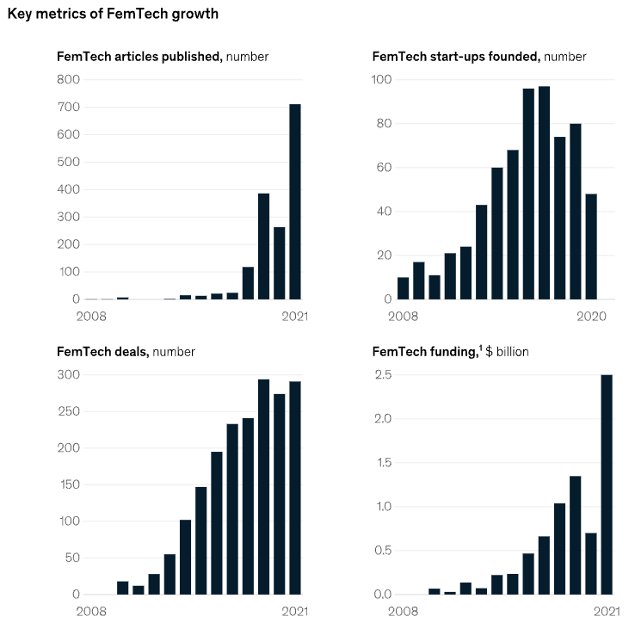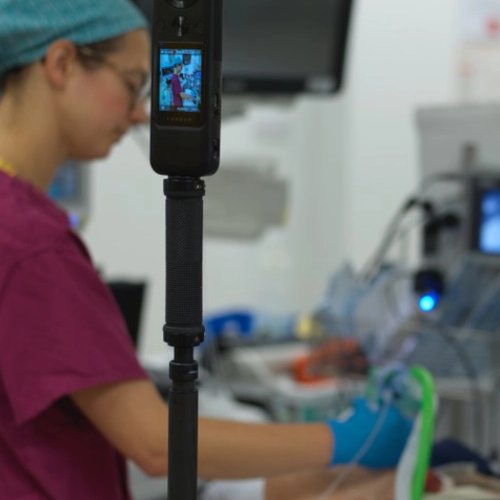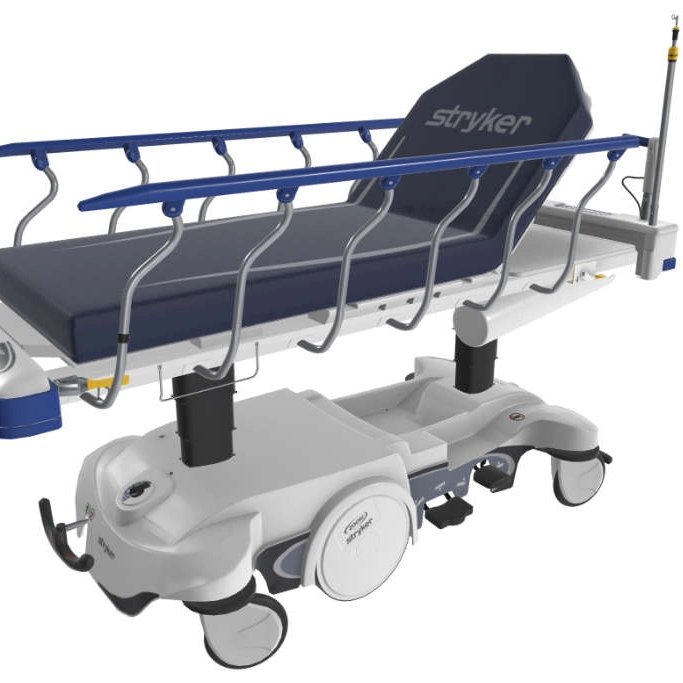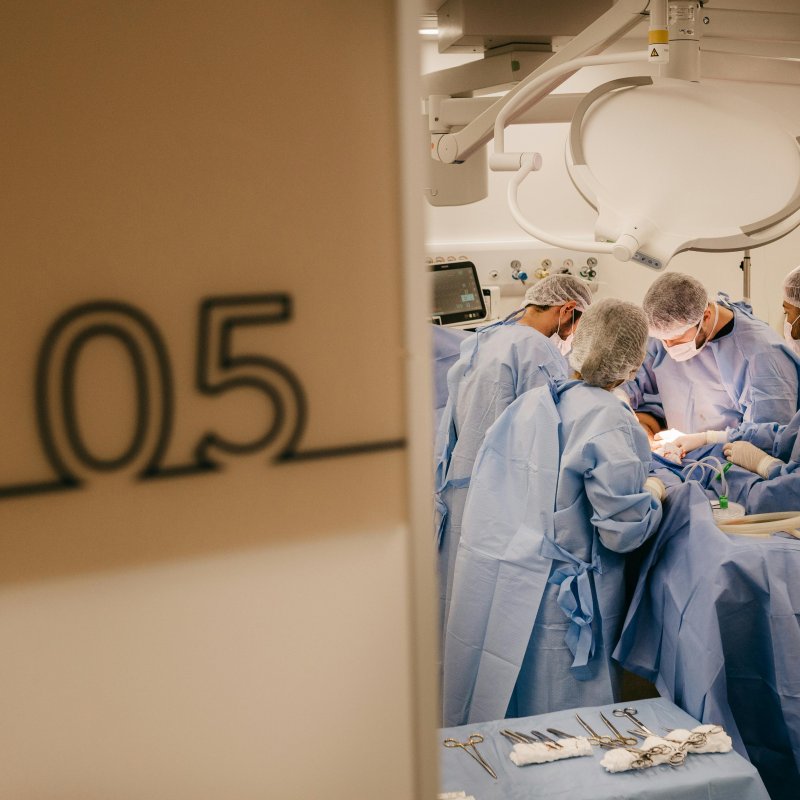Contact Us
+44 20 32897141 / 1 Pickle Mews, London, SW9 0FJ
FemTech and VR: A New Standard for Women’s Healthcare?
Published
Oct 25, 2024
Tags
The FemTech market has almost doubled in value since 2020. We explore the role that VR's set to play in this popular, evolving industry.
Next year, the global female technology (FemTech) market is expected to reach a value of $75.1bn. Almost double its worth at the start of the century ($40.2bn), FemTech is empowering better outcomes for women, whether patients or consumers.
Given women are 75% more likely to use digital tools for health-related information than men, it’s no wonder investors are taking note. Add to this that women spend over a third more on healthcare needs than men, and it’s clear why female healthcare is getting a long-awaited makeover. It’s also clear the industry is looking to another form of technology to inspire the next wave of FemTech innovations: virtual reality (VR).
Let's get into it.
The History of FemTech
In the grand scheme of technology, FemTech is still relatively new. The term itself was only coined as recently as 2016 by Ida Tin, a FemTech entrepreneur. Ida saw opportunity in the gaps within women’s healthcare, and since then made it her life’s work to use technology to bridge gender equality.
In the years before she popularised the term ‘FemTech’, Ida co-founded Clue. The period and cycle tracking app has over 10 million active users from over 190 countries. It's become so renowned that it’s recommended by doctors as a way for women to understand menstruation, pregnancy, and menopause.
FemTech: The Scene in 2024
Since FemTech burst onto the healthcare scene, there’s been a 241% increase in UK FemTech companies. They exist to meet a multitude of women’s needs, from healthcare products to MedTech (medical technology), medical devices, and clinical diagnostics. As Tin explains, FemTech’s versatility doesn’t start and stop with the ‘obvious’ healthcare needs of women – it's tapping into many hidden or forgotten areas, too.
When we started out, we were thinking mostly about reproductive health. Now, I would say FemTech also covers things where women are impacted very differently from men or non-proportionally are affected, like brain health or bone health.
Ida Tin
Where are we in the FemTech Revolution?
In 2022, McKinsey & Co published a report titled ‘The dawn of the FemTech revolution’. It states the research ‘indicates that the dynamics underlying FemTech are accelerating’, going on to say that ‘public awareness, company formation, and funding [of it] are surging’. Indeed, data from Google Trends shows there wasn’t any interest in ‘FemTech’ as a search term until the late 2010s, but has spiked in recent years.
McKinsey & Co’s report goes on to show the strength and growth of awareness around FemTech. A quick glance of the charts below is all it takes to recognise how the industry’s popularity is surging. It’s not just the amount of funding being injected, either – the sheer number of articles being written and published on the topic are clear indicators of the amount of research happening within and around FemTech.

Source: The dawn of the FemTech revolution – McKinsey & Co, 2022
Virtual Reality in the At-Home Hospital Era
As FemTech matures into its second decade of innovation, we're keen to see how the industry leverages VR. By and large, we’re all aware of remote GP appointments or a virtual consultation. The next stage of this ‘at-home hospital’ era we’re moving into makes the healthcare experience more homely than ever.
Immersive technologies, like VR experiences, are primed to initiate and meet one of healthcare’s most important aims: positive patient experiences. When we receive care in environments we’re comfortable in, like our homes, we’re more likely to feel relaxed – and more favourable to the check-up or procedure we’re about to have.
VR Applications in FemTech
VR in FemTech is empowering more patient- and consumer-centric experiences, from virtual clinics for period pains to immersive mindfulness that support mental health treatments. Speaking generally, gaming is VR’s best-known form – and there’s plenty of scope for gamification in the FemTech world. The more engaging or ‘fun’ health technology is to use, the more likely patients and consumers are to engage with, and benefit from, it.
Take Peanut – it's the FemTech app which acts as a social network for women wanting to discuss topics like pregnancy, motherhood, fertility, and menopause. Peanut uses interactive resources and tools, like quizzes, to personalise the experience for the user. And, create community at a time where 79% of women feel ‘invisible’ – during pregnancy and motherhood.
Peanut might not be using VR just yet, but it’s this interactivity, personalisation, and accessibility that’s made it stand the test of time in an evolving FemTech market. Where VR is readily getting adopted is within our underfunded but overburdened NHS. Virtual reality technology is one of the most viable options to relieve some of the strain and provide the quality, personal healthcare women in the UK need.
The Future of FemTech and VR
With female technologies continuing to advance and investor attention heightening, it’s an inspiring time to work within the healthcare VR space. At ExR, we’re keen to collaborate with FemTechs and create immersive VR experiences that add even more power to these imperative female health solutions.
Thanks to the success of the cytology sample VR training we produced with South Yorkshire Primary Care Workforce and Training Hub, there’s another collaborative FemTech project in the works. We’re developing an experiential learning package to train doctors and nurses on cervical cytology, widening access to procedural training.
Click here to learn more about our work with South Yorkshire Primary Care, and keep your eyes on our case studies for this next stage of work. And if you’re an established FemTech company or just starting out and feel VR training could benefit your solution, get in touch.
Most recent posts
Like what you read?
Please get in touch with us.



